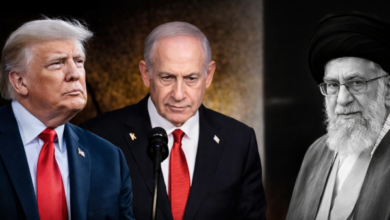
In a decisive move that could reshape Nigeria’s financial ecosystem, Presidential nominee Mrs. Obehi Okafor has assured the Senate of a bold, transparent, and productivity-driven framework for managing the nation’s Unclaimed Funds Trust Fund — a pool of dormant dividends and long-inactive bank balances statutorily warehoused by the Federal Government.
Appearing before the Senate Committees on Finance and Banking, Insurance and Other Financial Institutions, Okafor outlined a reform-minded vision centred on capital preservation, prudent asset allocation, and the use of unclaimed balances to expand Nigeria’s fiscal room without compromising the rights of original beneficiaries.
Understanding the Fund: Nigeria’s Quiet Pool of Idle Capital
The Unclaimed Funds Trust Fund — established under the Finance Act 2020 — aggregates:
- Unclaimed dividends from publicly listed companies (after six years of inactivity)
- Dormant bank account balances untouched for six years or more
These funds, though temporarily taken into government custody, remain claimable by their rightful owners. However, they have historically sat idle, underutilised, and largely unproductive.
Nigeria’s fiscal constraints, rising borrowing costs, and expanding public obligations make this pool of capital strategically important — if managed with discipline and transparency.
Okafor’s Vision: Capital Preservation, Productive Investment, and Risk-Conscious Growth
Addressing lawmakers, Okafor emphasised that the trust fund under her co-chairmanship would transform dormant funds into active financial assets that support national development:
“My mission with the unclaimed funds is capital preservation. Beyond governance, I will optimise returns while carefully managing risks. These funds must be productively invested for the benefit of the nation—without jeopardising the rights of the owners.”
Her strategy aligns with three key priorities:
1. Capital Preservation as First Principle
The fund will adopt a conservative, safety-first approach — prioritising liquidity, security of principal, and long-term stability.
2. Productive, Measured Investment for National Growth
Rather than idle dormancy, unclaimed funds will be deployed into low-risk, high-impact instruments that help broaden Nigeria’s fiscal landscape.
3. Risk-Prudent Asset Management
Investment decisions will undergo rigorous governance frameworks, ensuring transparency and compliance with global public-sector asset-management standards.
Senate’s Position: Accountability, Expertise, and National Impact
Senate Committee Chairs Sen. Sani Musa and Sen. Tokunbo Abiru challenged Okafor to demonstrate not only competence but strategic clarity — emphasising the need to show readiness to safeguard public trust and maintain the integrity of the fund.
Her performance was described as “clear, confident, and grounded in financial prudence.”
A joint report on her screening is expected to be presented for Senate approval next Tuesday.
BRANDECONOMY Analysis: Why This Appointment Matters
The Unclaimed Funds Trust Fund sits at the intersection of Nigeria’s capital market stability, public finance management, and national liquidity strategy. Okafor’s assurances align with growing calls for:
- More responsible fiscal alternatives outside heavy borrowing
- Greater transparency in public asset management
- Better utilisation of idle domestic capital pools
- Strengthened investor confidence through governance reforms
If implemented effectively, this could become one of Nigeria’s most innovative financial stabilisation instruments — similar to global models used in Singapore, Canada, and parts of Europe.
But success will depend on:
- Clear claim-processing systems
- Transparent reporting
- Strong risk controls
- Zero tolerance for political interference
Nigeria’s fiscal future increasingly depends on such smart reforms that extract value from existing assets while protecting citizen rights.











